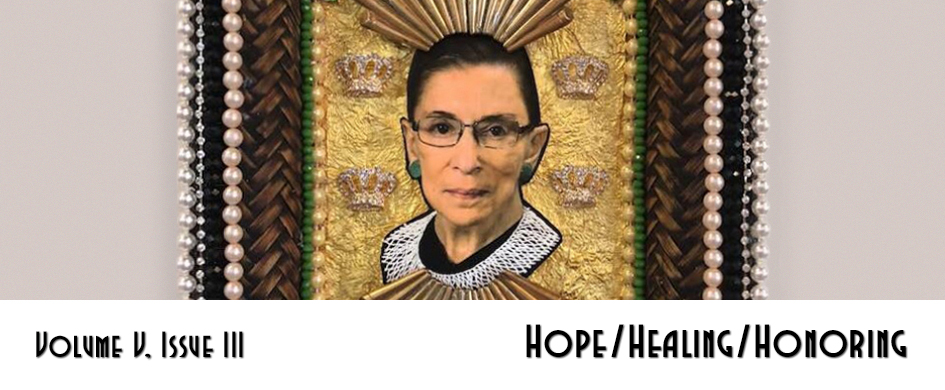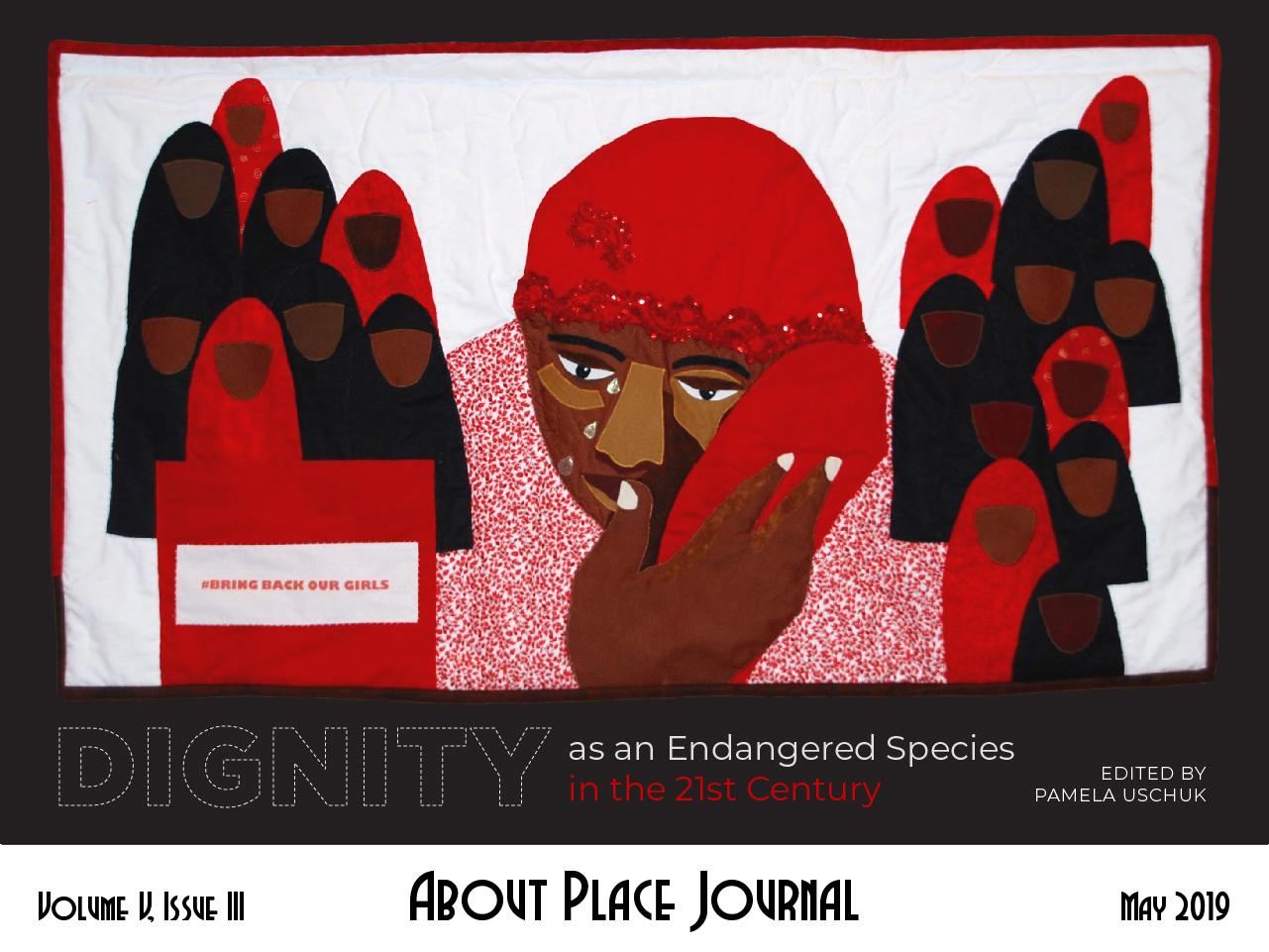Rain, this first day of November. Driving toward the prison, we pass golden and brown pecan groves and bales of cotton wrapped in yellow plastic, lined up in rows along stubble fields. Scratches of cotton still fleck the fields, fluffy white on sharp stems. Birds rise in the distance. Three huge farm trucks lumber along the narrow road.
When we get to Marks we pass a high school team, all Black, practicing in the rain. Prisoners in green and white striped pants clear weeds, pick up trash. We make this drive weekly, Patrick and I, an hour and a half through the Delta toward our students who are imprisoned for anywhere from three years to life.
At Parchman we eat our lunch in a cracked concrete parking lot across from the entrance, a cheese sandwich for me, a hot meal for Patrick, who prays before he eats. Then we enter the gates.
~~~
Now the 18,000 acres of Parchman Penitentiary, flat as a board around us in the middle of the Delta. Beyond the entry, meager white houses dot the road, where guards live with their families. Outside some, a swing set or kids’ bikes, but no visible kids. Hallowe’en decorations—a black plastic ogre, fake spiderwebs draped on bushes.
A tool building, more fences, bare fields, some tractors. To the right, down a road we don’t follow, the high walls of maximum security. To the distant left, a low dark building all by itself—Death Row, swarming with guard towers.
~~~
I see only what I see. Our tidy classroom building that does have dependable heat and AC, the blackboard that Patrick covers with writing, the semicircle of chairs, a green linoleum floor, windows onto the fence with its coiled barbed wire. Occasional flurries of little birds, back and forth across the fence. Sparse grass, tiny blue daisies. The windowless block across the parking lot from which our students come, hurrying through cold drizzle in their thin blue jackets to the building where we teach—the windowless block into which, every week, they vanish.
~~~
I’d like to know who our students are, how they ended up at Parchman, but I don’t ask, nor what they will do once they’re released. Sometimes they mention their children, the wives or girlfriends who wait for their return. I know enough about Mississippi to know that for most of these men there will be no forgiveness, they’ll have trouble finding work, but some were sentenced for no worse than what the frat boys on my campus do at parties.
~~~
Today, watching bamboo sway in the dull November rain outside my bedroom window, I need to think about things other than white supremacy, state-sanctioned premature death, systemic under-education, racial profiling, the carceral state, the legacy of slavery—all the phrases Patrick uses when he speaks of what we’re fighting, of our students’ ground-down lives, and the way Felon will follow them once they’re out.
I am exhausted and angry and need to think only about pecan leaves thick on the ground, a blue wintering sky, the tile roof of the gleaming house next door. And the gingko seedling I found in the hedge, struggling for light amidst bamboo and wisteria.
~~~
Yesterday, too, a stinging rain. The windshield wipers thwapped back and forth but Patrick could hardly see as we drove through the Delta, talking about our students. Let us learn to develop a dangerous unselfishness—Patrick said King said that in his final sermon, in Memphis, and when, not hearing, I asked, Who? Patrick said, Martin King, and then he laughed, My girlfriend always teases me I say Martin King like he was my best friend. He’s on fire with King and Malcolm X, Fannie Lou Hamer, Angela Davis, all the narratives of slavery, prison, education, freedom. Sometimes you can’t change the confinement of your body, he tells our students, but you can free yourself from the confinement of your mind. He carries the word, shakes the men’s hands when they arrive, begins every class with the chant that used to embarrass me, I’M A STUDENT! I’M A TEACHER! I’M A SCHOLAR! I’M CREATIVE!—we shout it three or four times together, and by now I love how this affirmation revs up men to whom life has offered little. Soon they are talking all at once. They tell us, this class every week the one thing that get my mind going.
~~~
For me they write about romance, babies, football, grandmas or aunties who raised them and pray for them, cousins who died from guns, uncles who taught them how to hunt and found them when they got lost in the woods. Elaborate descriptions complete with maps of Quick Bed, where they’re sent first before being assigned in prison. How the guys who aren’t in gangs have to stand just so at meal lines or they’ll get taken down, how security, which means gang members, guard the showers, how two of the four toilets for sixty men are never working, how it stinks. They describe being transferred from jail to prison through the Mississippi night, in trucks fitted out with bifurcated kennels, two men to a side. They mention taking the helicopter ride, but haven’t said yet what that means, so I envision prisoners taken up one by one over the endless acres of Parchman, just in case they thought they could escape.
~~~
One of our students, on fire, is writing a book. Forty-two years ago I shot a man who was cheating me of overtime, and robbed him and fled. When they caught me I confessed. Turns out he was high up in the Klan so they brought me for my safety to Mississippi. Fourteen years ago, he writes, he came up for parole, but his family had all died and he had no place to go, so they kept him here in prerelease.
I was a cradle Catholic, he writes. They didn’t bring me up to kill or steal. I despaired of my soul until at last a priest came. In all-caps he letters out the passages, chapter and verse, that he and the priest recited, back and forth, like dueling Bibles, our student to prove damnation and the priest to prove forgiveness, until at last, in tears, our student accepted that even he could be led through prayer to reconciliation.
Another man, too, is working on a book. When I was five, he writes, my baby brother choked on a pill. My daddy run through the door screaming, pushing me out the way. Baby was blue. I prayed with a glow on my face as if Jesus was in the room with me, and the baby coughed and lived. Later I lost God. —This is the part he doesn’t want to tell yet, how he ended up here.
But then in prison I signed up to work in the kitchen. I met two men who taught me to cook and they led me to the Bible. One told me, See this bloody meat? What do that say to you? I don’t know, food poisoning? I answer. O you child of little faith, he say, don’t you know the blood of Christ is here for you like always?
Now, our student says, I pray without ceasing. Me and my people we serve the Lord.
~~~
Back home, the astonishing afternoon light when I walk out after rain. Scarlet leaves of dogwoods and maples grow brittle with umber, the small taste of death.
The astonishing light. These words I have written haunt me. But to me, what do they mean?
~~~
Toward the end of our class today I looked out across the barbed wire fence to a stubble field covered with white birds. I said, Oh look at the birds! One man told me they are cattle egrets and they come every night, thousands of them, and settle in the field like a shining cloud. Then as Patrick and I were leaving the building, I asked the woman who works the front desk if she had seen them and she replied, My grandma always tell me a cloud of blackbirds mean cold weather coming.
I wondered why she said black until, as we drove away, I looked up to see a sky filled with calligraphy—dark lines intertwining, looping, angling off and circling back, against the sunset. I watched them for miles. These were the same birds, white in the light of afternoon, jet black against the roseate sky.


